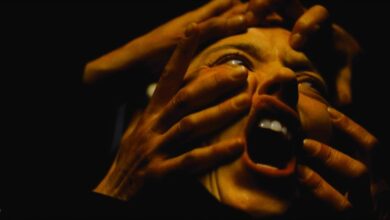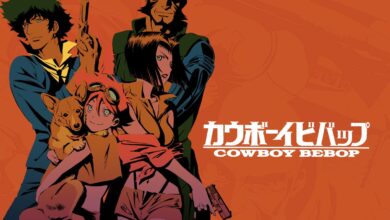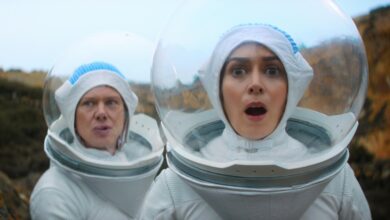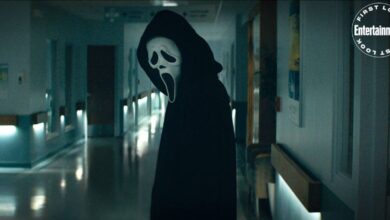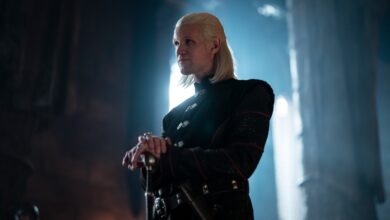The Power of House of the Dragon Explained! A Narrative Focused Exclusively on the Top
House of the Dragon with the second season has raised the bar of writing and characterization of the characters even further. Based on “Fire and Blood” by George RR Martin and set 190 years before the events of Game of Thrones, it leads us into the civil war that led to the beginning of the end for the Targaryens and their dominion in the Seven Kingdoms. But above all, the rivalry between the two branches of the dynasty of the dragon rulers is a perfect example of how, in the game of Thrones, in reality, personal motivations and feelings have always played a central role, net of the often-mechanical vision we have of ourselves, of History and of those who are its protagonists.
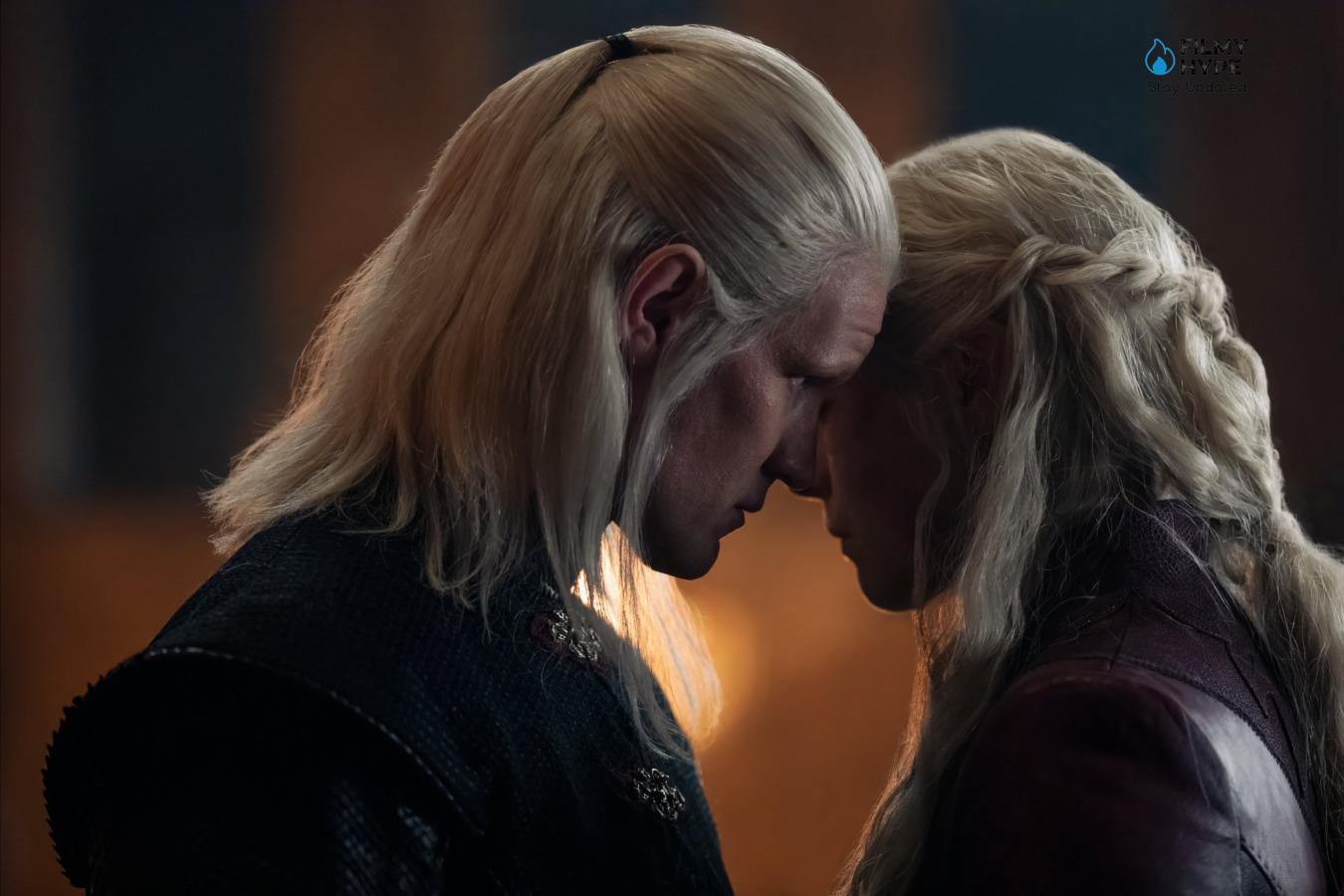
The Power of House of the Dragon Explained! A Narrative Focused Exclusively on the Top of the Company?
House of the Dragon started with a stealthy pace at the beginning, so much so that it even gave rise to accusations of slowness on the part of the public, who expected something much more similar to Game of Thrones. But Ryan Condal and George RR Martin‘s series is different, it is a journey into the power and therefore into the summit of a nation, and this is why the concept of a transversal odyssey that had made Game of Thrones so compelling is missing, here instead we witness an examination connected to Nietzsche’s vision, for which it is the great personalities, for better or for worse, who make history. The rest of the world, the people, the varied and variegated humanity that still counted a lot in the universe that George RR Martin had shown in his novels, simply does not appear or almost.
It follows that by remaining at the top, it is power in the most classic sense that reigns supreme, it is the Palace game, with its bending and circumventing laws, and rules, with its world of plots, lies, alliances, and above all personal relationships. Everything is personal, nothing is in House of the Dragon, where the real feud that brings the Kingdom into the vortex of civil war is connected to the rivalry between the Hightowers and that part of the Targaryen dynasty represented by the brother of King Viserys I (Patty Considine), Daemon (Matt Smith) and his wife/niece Rhaenyra (Emma D’Arcy/Milly Alcock). Considine was incredible in showing us the decomposing body of a King, which becomes a metaphor for the decadence of a Kingdom that is effectively immobile, where the different houses rotate with monothematic synchrony, but where there is no shortage of opportunities obviously for men with few scruples and great cunning.
Otto Hightower (Rhys Ifans) is the perfect personification of this. Once the King’s most trusted man, over time he has shown his true face, that of a man who puts the conquest of power by his family before anything else, despite all reason and all the needs of the Kingdom he has sworn to serve. His daughter Alicent (Olivia Cooke) is more of a victim than an architect of that feud, which will bring fire, flames, and death to that sort of gigantic extended family. House of Dragon has the great merit of bringing this anarchy to a gradual development, made of misunderstandings, suspicions, rivalries, and above all personal relationships.
The one between Viserys I and his brother Daemon is very complicated and turbulent, but never like the one between the latter and Otto, in fact, the real leaders of a rivalry, which also involves their respective children and grandchildren from a young age. If we look at History, the real one, which Martin has always been inspired by, from the War of the Roses to the various Wars of Succession that have bloodied the world since ancient times, we see that there is nothing unrealistic in House of the Dragon, indeed it is the mere re-enactment of what happened during the Hundred Years’ War, the Year of the Four Roman Emperors or the Pahang Civil War.
Families, dynasties, sometimes even closely connected by blood ties, by a common past, who claim supreme power, and the consequences, as seen in the series, are paid by the people, the great masses, those used by the powerful to do what Stanley Kubrick in Barry Lyndon called “The fierce work in the world”. Machiavelli would have smiled to see the obstinacy with which the two fronts deny each other any possible agreement, or mediation, often without any logic, but letting their emotions guide them, something absolutely distant from the rationality that a politician of any era is supposed to embrace. And that is why, in the end, the whole thing resembles more a Shakespearean tragedy.
Chaos and Chance as the True Protagonists of History
House of the Dragon is above all the story of the two of them, Alicent and Raehnyra. Friends, then separated by the Game of Thrones, the second wife and firstborn of that Viserys I, who beyond his goodness, wisdom, and sense of proportion, has often shown himself to lack a real ability to understand what the right choice was, who to trust and above all to stem in time the chaos following his passing. The choice of the weak and unstable Aegon II Targaryen, his and Alicent’s son, is in reality the result of a misunderstanding of his last words. As often happens in History, lies often become the truth, but even more the engine of events that are then no longer remediable. Alicent and Raehnyra are two mothers divided by the suspicion that arriving second in the race for the Throne means the end for themselves and their offspring.
For this reason, too, the series focuses a lot on the validity of the paternity of the children she had with her first husband, Laenor Velaryon, but for almost all of them clearly the fruit of the union with Ser Harwin Strong. This is another indication of how everything here ultimately always and in any case returns to being a personal question because it is based on the subjectivity of law and opinion. Who is more deserving of the throne? The new son of the King? The redeemed brother? His firstborn wife? In this ambiguity lies the casus belli of a Kingdom of Dragons, where morality does not exist, where brothers kill each other for the throne, where oaths are broken and there is no real ideal, but only one of convenience. Even in this, House of the Dragon is incredibly more cynical and much less idealistic than Game of Thrones. Just think of Criston Cole (Fabien Frankel), initially almost a copy of a myth like Ser Lancelot, then revealed to be a deeply evil, hypocritical, selfish, and devoid of any honor man.
House of the Dragon kills courtly love and romance, but also the principle of decisionism. The war, when it breaks out, does so by mistake, for Aemond Targaryen who is unable to control his dragon Vhagar and kills the young son of Raehnyra, Lucerys Velaryon. That moment, however, comes after decades of quarrels, suspicions, and wars for affection and influence over the dying sovereign. Daemon’s response, sending assassins who finally behead the little Jaehaerys, son of Aegon II, is just further proof of how on both sides there a lack of true political leadership is, an idea, something other than responding blow for blow.
The meeting between Alicante and Raehnyra at the Capital, that impossibility of a peaceful solution that in reality both know is the only way at the moment, is only proof of the chaos that reigns in this world, something incredibly realistic, which reminds us how History has often been the result of wrong decisions, of errors, rather than of brilliant intuitions. Chance and chaos take away any possibility of real control from the protagonists, and the lack of communication between the two fronts leads both to paint each other as more monstrous, cruel, or worse than they are, the reality is that the Blacks and the Greens are actually two sides of the same coin of houses now devoid of a true purpose other than power for power’s sake. Regarding the Kingdom, its inhabitants, and what to offer for the future, no ideas, projects, or initiatives emerge.
For them the people, their own soldiers, have no value, even the other great houses are quite changeable and difficult to read. In this denial of the leader as a holy and infallible figure, the definitive bond between George RR Martin, his vision of the world, and the one that Frank Herbert had created in the “Dune” saga is consumed. House of Dragon is an expansion of that conception, cloaked in intimate and personal dramas, which have always had a much greater weight in creating the world than historiography and narration have often described.


